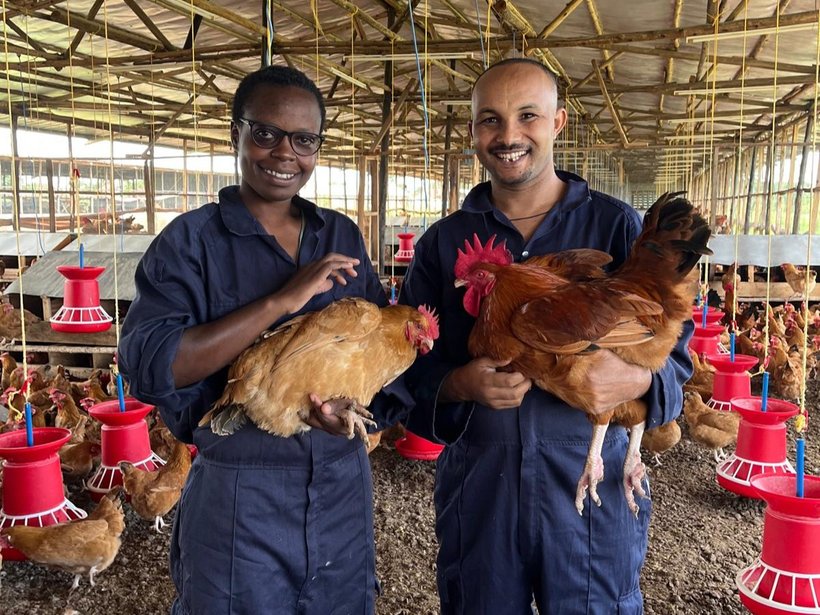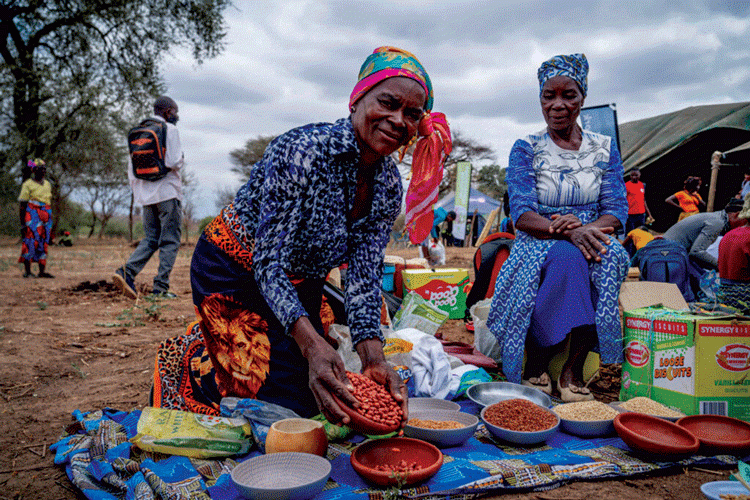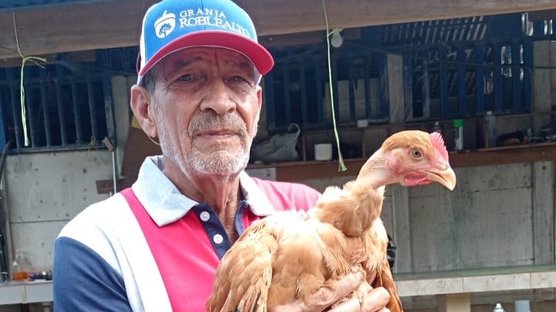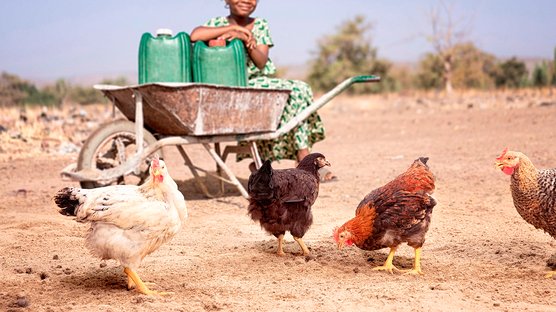
Published on June 16, 2025
SASSO: When poultry farming becomes a driver of empowerment and rural development
In many parts of sub-Saharan Africa, rural communities face major challenges such as food insecurity, lack of income, greater vulnerability to climate change, and difficulty accessing stable jobs.
In addition, women in rural areas are overburdened with work, not only taking on the role of household manager, but also managing nearly 70% of food production and being responsible for the entire food chain, from production to processing to final consumption. It is in this context that the dual-purpose poultry production and distribution model promoted by SASSO stands out as a sustainable solution for rural development and women's empowerment in Africa.
For years, we have been working hand in hand with rural farmers to help them develop their businesses as best as possible. While our business is primarily focused on the genetic selection of traditional poultry, our commitment goes far beyond that. We are convinced that a resistant, high-performance chicken that can adapt to local conditions can make a big difference in the lives of families in need.
An inclusive and resilient model at the heart of rural communities
Bred to adapt to local conditions, SASSO chickens enable small farmers to generate income in a short period of time thanks to their hardiness, rapid growth, and, above all, a robust dual-purpose breed capable of producing both meat and eggs. Based on the APMI model (developed by the World Poultry Foundation) with performing mother units and a strong network of small local farmers, the system not only reduces early mortality among animals but also creates local value chains and includes women and young people in the rural economy.
SASSO in action
📍 Zimbabwe - Murehwa and Mbire District
In this region, SASSO chicken farming has been identified as a real level for empowerment. According to a study by the CGIAR (Consultative Group on International Agricultural Research), women have been able to move from subsistence farming to a form of economic independence through the integration of agroecological models. The income generated from the sale of chickens has enabled them to reinvest in other agricultural activities, thereby strengthening their autonomy and promoting a virtuous circle of local development.

Picture credits: NewsDay Zimbabwe
📍 Soudan - SASSO development project
A project currently under discussion with local partners aims to provide vulnerable communities with dual-purpose SASSO chickens to help families set up small poultry farms, thereby helping them become more self-sufficient, reducing poverty, and empowering women, particularly in post-conflict and displaced areas. The ultimate goal? To promote food security, improve nutrition, and create sustainable small-scale economic opportunities by generating income. This promising initiative is yet another example of the role that well-adapted poultry can play in fragile contexts.
📍 Tanzania – Silverlands x APMI
In Tanzania, our partner Silverlands has set up a model structured around SASSO breeds, inspired by the APMI program, combining chick distribution, technical training, and field support. The Poultry Training Center, managed by Sarah Ndimbo, enables women, among others, to train in the APMI model, which will subsequently enable many small-scale producers, particularly women, to start with affordable flocks of robust poultry adapted to local conditions. Thanks to this system, women sell chicks, train their neighbors, pass on their knowledge, and generate sustainable income for their entire families.
📍 Sub-Saharan Africa – Hatch Africa x SASSO
Hatch Africa, as a key partner, works closely with SASSO to transform poultry farming in sub-Saharan Africa into a powerful lever for empowerment and rural development.
In 2024, Hatch Africa continued its mission to make rural farmers more prosperous in six sub-Saharan African countries (Ethiopia, Uganda, Rwanda, Kenya, Ghana & Ivory Coast) by delivering more than 47 million chicks to rural entrepreneurs. Known for their dual purpose of meat and egg production, SASSO chickens enable farmers to generate stable incomes and improve food security in their communities. That year, Hatch Africa could reach 2.8 million rural farmers. This collaboration has not only produced more than 3.5 billion eggs, but has also contributed to a significant increase in farmers' incomes. By integrating SASSO chickens into their model, Hatch Africa is strengthening the resilience of rural communities to climate and economic challenges, while further empowering women and young people.
Creating value, together
At SASSO, we believe in short supply chains, collective intelligence, and local resilience. That's why our model is primarily based on:
- Partnerships with NGOs and local authorities
- Training tools adapted to the realities on the ground
- Long-term technical support
- And, as always, a desire to build with communities, for communities.
The idea is to make this accessible to everyone. Starting with just 5 to 20 birds allows small-scale producers to test the model at low risk. Support and training then enable them to gradually develop their business, with concrete results in terms of economic stability, improved nutritional quality in villages, and community empowerment.




